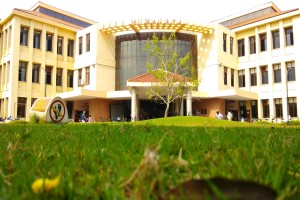
 By Lata Baisoya
By Lata Baisoya
Chennai: The Indian Institute of Technology (IIT) Madras has been completely closed down after 33 more persons were tested positive for COVID-19 there today, taking the total number of cases in the hostel to over 100 since yesterday. On Sunday, 71 persons including 66 students and 5 staff members tested positive. Subsequently, the IIT has now tested 444 people out of the 700 present in the campus.
Tamil Nadu Health Secretary J Radhakrishnan said “’a lesson for all of us District authorities have been emphasising that this kind of spread is possible in other colleges, especially in hostels. Even here, there was a common mess. We have asked for this mess to be closed and prepared as a take-away option. When it comes to closed spaces, crowded spaces and close contact we have to remain very careful.”
The first case was diagnosed after some students began to show symptoms of the coronavirus. The mess worker has been tested positive for Covid-19 on 9, December. After this the mess was closed and food was sent to the rooms of the residents.
In a statement issued on December 13, IIT-Madras said, “The Institute has been functioning on limited capacity with only 10% students in the hostels. As soon as a spurt in symptomatic cases was reported by some students residing in the hostels, the Institute has consulted the civic authorities and has arranged for all students residing in hostels to be tested for COVID. To be cautious, all students have been asked to remain in their rooms and packed food is being supplied to the students in the hostels.”
IIT Madras has been permitting research scholars who need to do experimental work to return to campus after a 14-day quarantine and COVID-19 tests. “Our capacity to quarantine (with room service) is limited, and this limits the rate at which we can bring back scholars to the hostels,” the institute added.
“Some Project Staff working on research projects and staying in the city have been coming to work in the labs, once this was permitted by the government. A SoP (Standard operating procedure) is in place to determine how many scholars and project staff can work safely in each lab based on its size, ventilation etc,” said the statement.
“Research scholars who wished to return earlier (out of turn with respect to the SoP involving quarantine before release into the hostels) were permitted to do so if they were willing to stay off campus similar to project staff, till their turn came to be accepted in the hostels, and provided their lab could accommodate them,” it stated.





